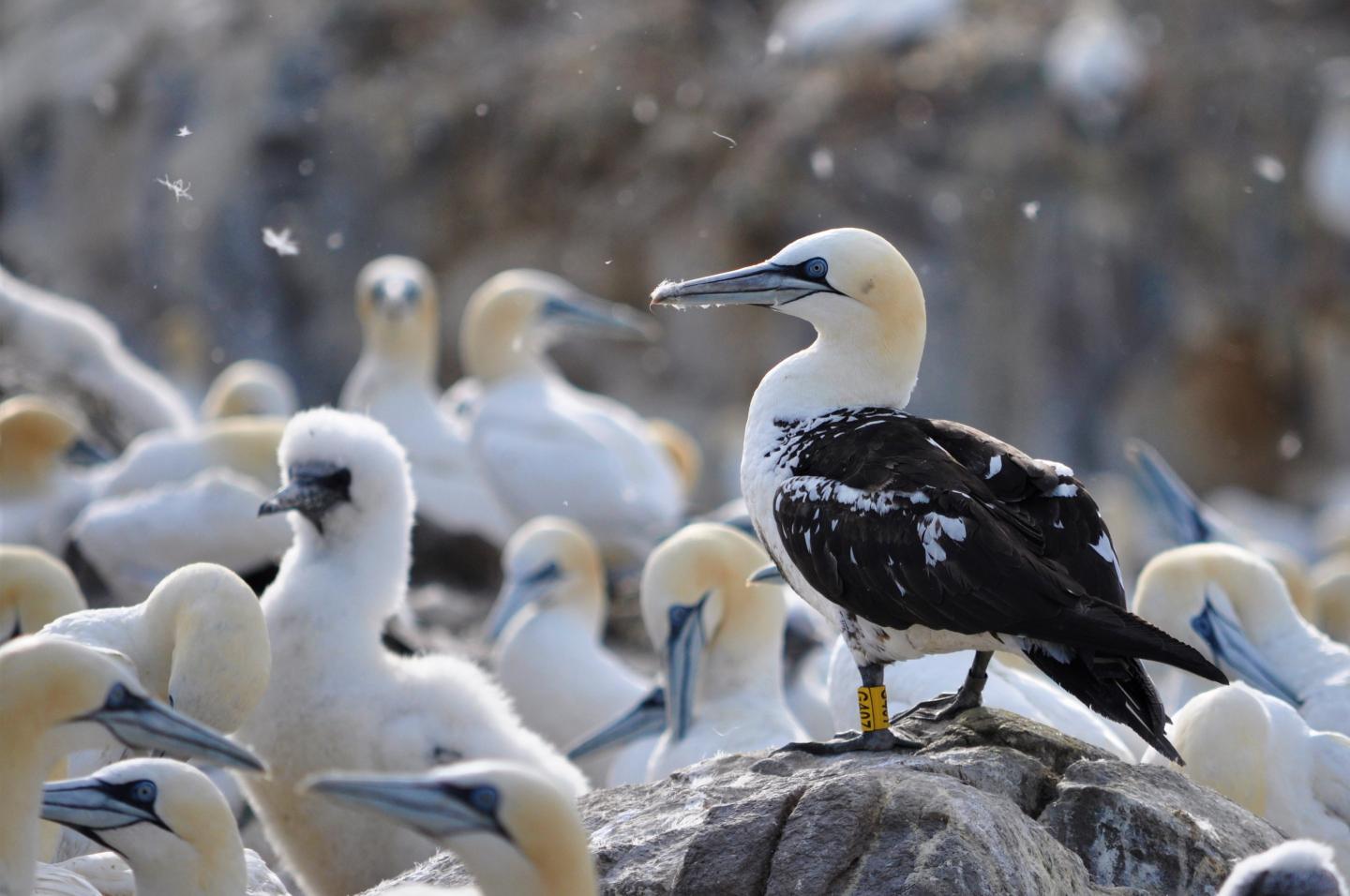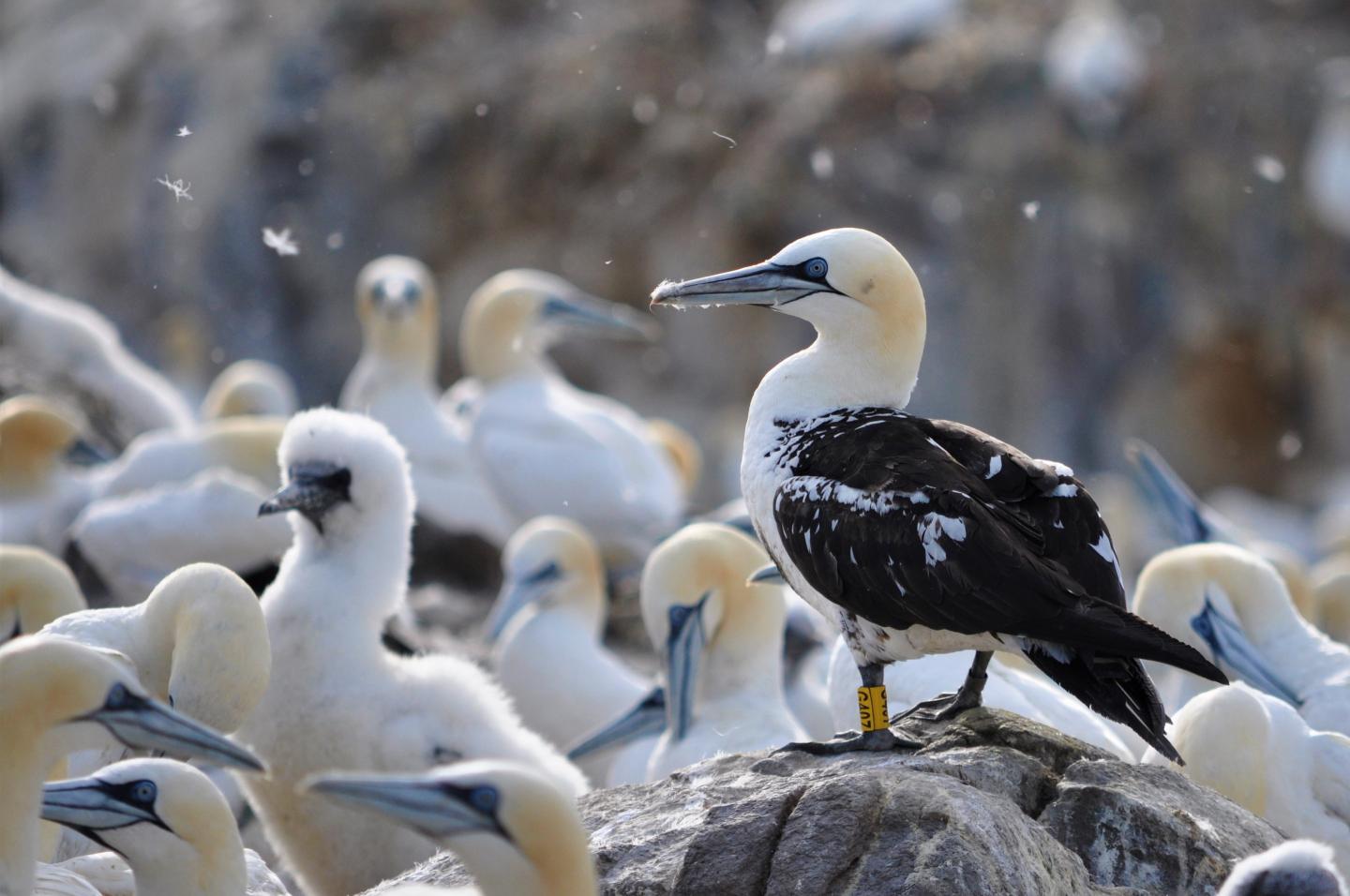
Credit: Beth Clark
Like humans, some birds can spend years learning and exploring before developing more settled habits.
A study of northern gannets has shown adults return to the same patch of sea over and over again to find food.
But younger gannets search far and wide and tend not to return to the same places – even if they find good hunting grounds, University of Exeter researchers found.
The study also compared successful breeding adults with those which failed to breed, and found successful breeders stuck to their feeding grounds more reliably.
"It's common for birds like gannets to return to the same foraging grounds year after year," said Dr Stephen Votier, of the Environment and Sustainability Institute on Exeter's Penryn Campus in Cornwall.
"They disperse widely at sea, and the fact that they return to specific areas is presumably linked to finding good foraging conditions.
"However, gannets don't breed until they're four or five years old, and our research shows that this tendency to return to favoured foraging grounds is lacking in birds younger than this.
"This finding suggests that such behaviours are probably learned, and that gannets use their long period of immaturity finding good sites and remembering where they are.
"However, foraging sites in adults are not absolute – when experienced birds had more time on their hands after a failed breeding attempt, some became more exploratory. This suggests that refinement occurs throughout an animal's lifetime."
The research team studied gannets on the Welsh island of Grassholm, supported by the RSPB, and used precision global positioning system (GPS) loggers to find out whether individual birds returned to the same foraging grounds time after time.
Successful breeders showed strong attachment to certain areas and took similar routes when travelling to and from them.
Immature birds (aged two or three years) were much more varied both in foraging sites and routes taken.
The results support the "exploration-refinement foraging hypothesis" – that birds explore and slowly improve their foraging with age and experience.
The paper, published in the journal Proceedings of the Royal Society B, is entitled: "Effects of age and reproductive status on individual foraging site fidelity in a long-lived marine predator."
###
Media Contact
Alex Morrison
[email protected]
01-392-724-828
@uniofexeter
http://www.exeter.ac.uk
Related Journal Article
http://dx.doi.org/10.1098/rspb.2017.1068





